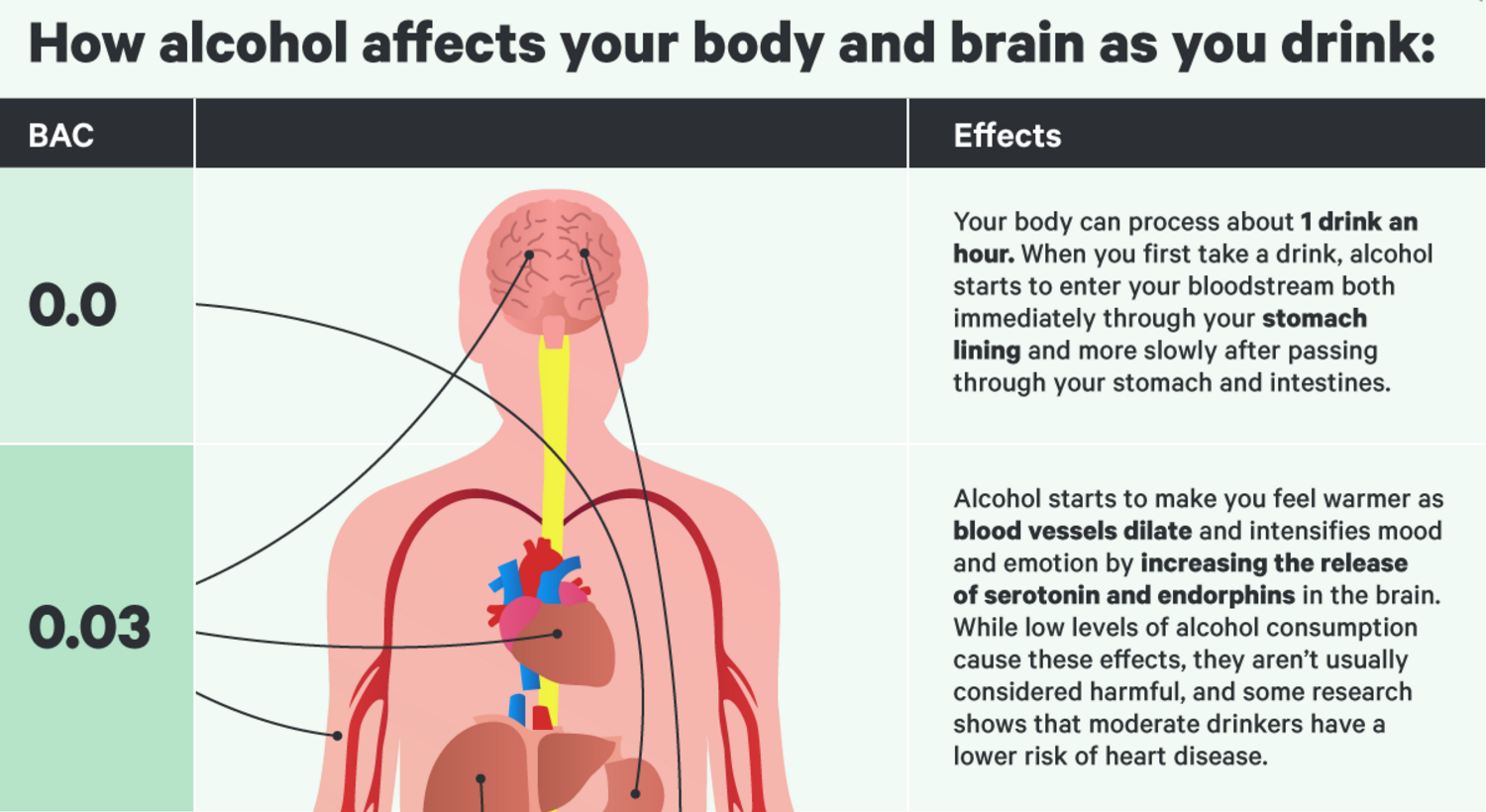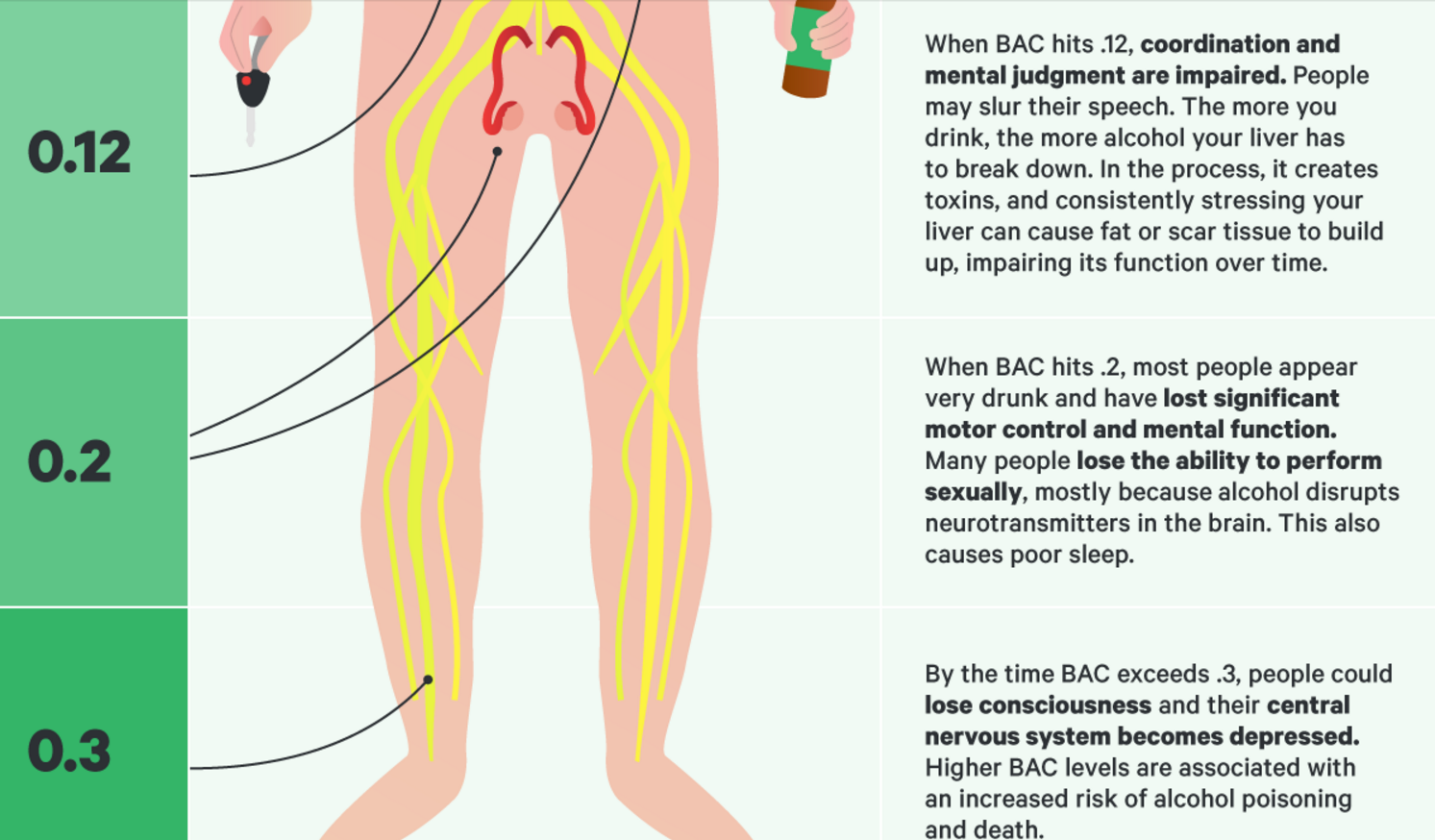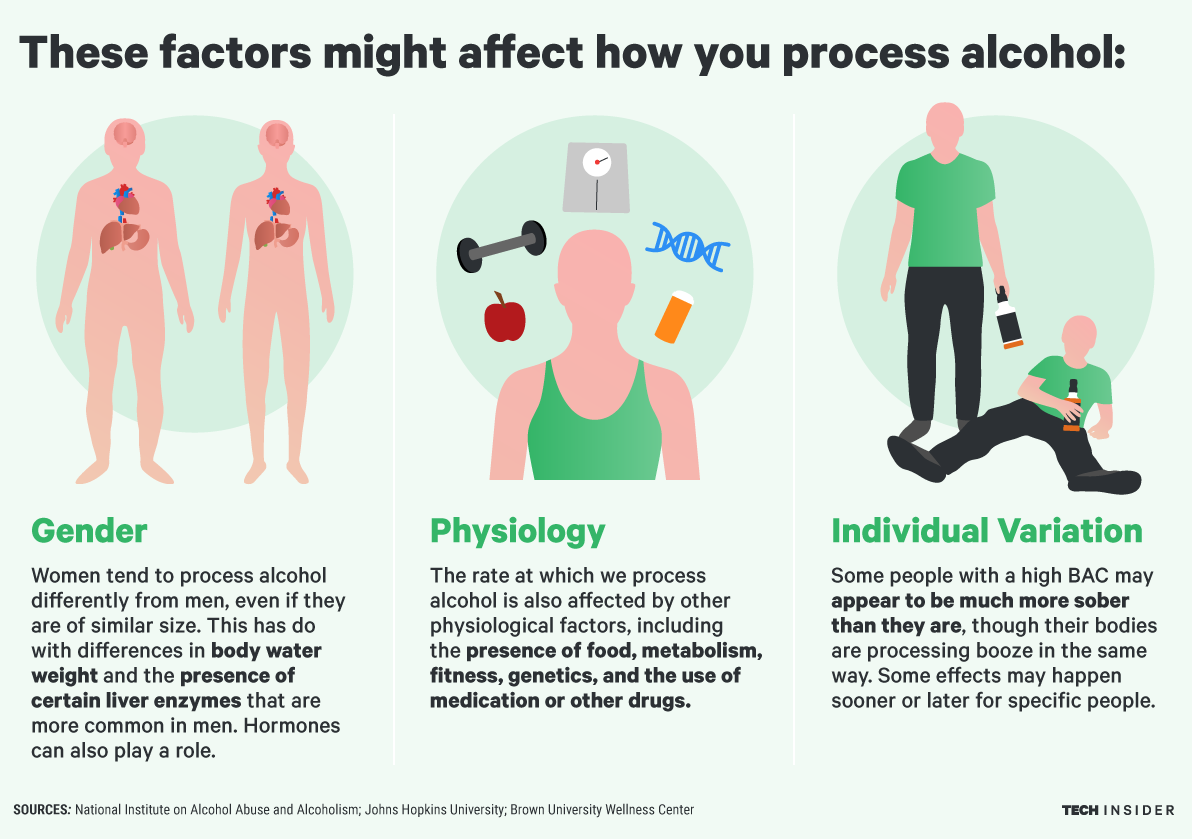What Happens to Your Body When You're Drunk and Keep Drinking

By:
What actually happens when you have too much to drink? The answer might seem obvious, but in reality, it's a lot more complicated than you think.
The people over at Tech Insider researched what happens to your mind and body the moment you take your first drink, to the moment you've had one too many drinks. Specifically, they measured exactly what happens when your blood alcohol concentration rises steadily over time.
According to the National Institute of Alcohol Abuse and Alcoholism, how quickly a body metabolizes alcohol depends on the amount of enzymes in the liver. However, it's generally recommended to consume no more than one drink per-hour in order to keep your blood-alcohol concentration (BAC) low. The moment you consume more than this, "your system becomes saturated and the alcohol will accumulate in the blood and body tissues until it can be metabolized," according to the University of California Santa Barbara.
As soon as you down drink number one, alcohol immediately enters the bloodstream through your stomach lining.
Depending on who you are, one drink is relatively safe. One drink equals a one 12-ounce beer, 1.5 ounces of liquor, or 5 ounces of standard wine.
When your BAC hits 0.03, a relatively low amount of alcohol concentration, that's when the feel-good effects of alcohol may kick in. According to Tech Insider, your blood vessels start to dilate and the body releases serotonin — a chemical thought to maintain mood balances — and endorphins, a feel-good hormone.
 Tech Insider - techinsider.io
Tech Insider - techinsider.io
When you reach a BAC of 0.08 — equivalent to about three drinks — then you risk putting yourself in harm's way.
With a BAC of 0.08 percent you're liable for driving under the influence (DUI) or driving while impaired (DWI) in all 50 states, according to the Department of Motor Vehicles. Although states have ruled that a 0.08 BAC is what constitutes legal impairment, driving skills and judgment are impaired in most people long before they exhibit signs of drunkenness or even reach a BAC of 0.08.
 Tech Insider - techinsider.io
Tech Insider - techinsider.io
Anything higher than the legal limit of BAC can take a severe toll on your mind and body.
As Tech Insider points out, the more you drink the more alcohol your liver has to break down. The excess alcohol eventually releases toxins into the body, which is part of the reason why people get alcohol poisoning when they drink too much, according to Medical News Today.
Christian Nordqvist explains.
"Rapid drinking can bring your BAC so high that your mental and physical functions become negatively affected. Your breathing, heartbeat and gag reflex - which are controlled by types of nerves - might not work properly. You become breathless, you may choke, and your heart rhythm might become irregular. If your BAC is high enough, these physical functions can stop working, the patient stops breathing and passes out (loses consciousness)."
 Tech Insider - techinsider.io
Tech Insider - techinsider.io
But the effects of alcohol may vary based on different factors like gender, weight, food consumption, and your body's way of processing alcohol.
For example, women tend to have higher BAC's after consuming the same amount of alcohol that men do, according to the National Institute on Alcohol Abuse and Alcoholism. This is due to the fact that women, even on a pound for pound basis, have less water in their bodies than men, according to NIAA. On top of that, studies cited by Scientific American found that women have lower activity of the alcohol metabolizing enzyme ADH in their stomachs.
 Tech Insider - techinsider.io
Tech Insider - techinsider.io
